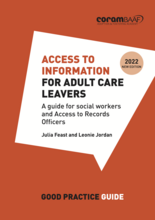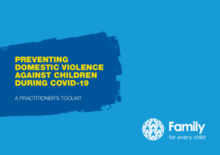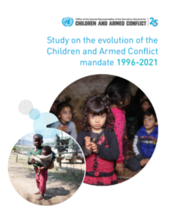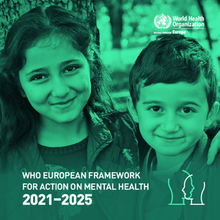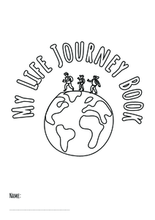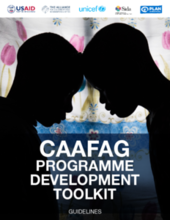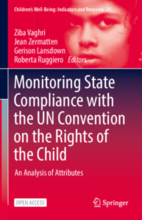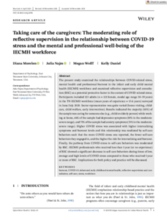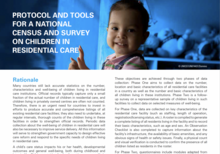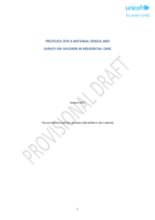Displaying 841 - 850 of 4424
This good practice guide published by Coram BAAF is for Access to Records Officers (AROs) and social workers in the UK who are providing access to records and related services for adult care leavers and aims to set out a protocol for dealing with Subject Access Requests (SARs) in order to improve services for adult care leavers and establish greater consistency and quality practice across organisations.
Family for Every Child Alliance members strengthened and adapted their service delivery to provide vital support in the changed circumstances. This Toolkit uses their experiences and lessons learned to guide practitioners to support children and families to prevent domestic violence from affecting children. With specific resources focused on prevention and response, a variety of practices from around the world are given here, to encourage cross-learning and exchange and to generate new learning across the alliance and beyond.
This study looks at the results achieved under the mandate of the Special Representative of the Secretary-General for Children and Armed Conflict (SRSG CAAC) in the past 25 years, the challenges that impacted its implementation and the opportunities to improve the protection of children affected by conflict.
The WHO European Framework for Action on Mental Health (EFAMH), covering the period 2021–2025, sets out a response to current mental health challenges arising from the negative impact that the COVID-19 pandemic has had on population mental health and well-being. The EFAMH provides a coherent basis for intensified efforts to mainstream, promote and safeguard mental well-being as an integral element of COVID-19 response and recovery; to counter the stigma and discrimination associated with mental health conditions; and to advocate for and promote investment in accessible quality mental health services. Implementation and monitoring of this Framework for Action will be powered by the Pan-European Mental Health Coalition, a flagship initiative of the European Programme of Work 2020–2025. Draft of this document was tabled as a background document for the discussion on mental health during the 71st session of the Regional Committee for Europe, Virtual session, 13–15 September 2021.
Since the start of war in Ukraine, more than 4 million people have fled, half of whom are children. As of today there is the Mylifejourneybook for these children: an activity book in which children can write their experiences of the journey, but also their memories of Ukraine and their hopes for the future. The book can be downloaded free of charge for everyone at www.lifebookforyouth.com/mylifejourneybook
The Toolkit is intended for field practitioners working with Children Associated with Armed Forces and Armed Groups (CAAFAG), who are interested in designing and implementing quality, gender-sensitive and participatory programming.
Three decades of reporting from the States Parties to the Committee on the Rights of the Child have revealed many gaps between the promise of the convention and the reality on the ground for children. This book is an article-by-article analysis of almost all substantive, organizational, and procedural provisions of the Convention on the Rights of the Child.
his study examined the relationships between COVID-related stress, mental health and professional burnout in the infant and early child mental health (IECMH) workforce and examined reflective supervision and consultation (RSC) as a potential protective factor in the context of COVID-related stress.
The Data and Analytics Section at UNICEF Headquarters developed a data collection protocol and tools for conducting a census of residential care facilities, the enumeration of children, and a survey of child well-being that can be replicated and adapted in a variety of country contexts.
This protocol for data collection on children living in residential care facilities (RCFs) aims to provide governments with clear guidance on recommended actions and steps for undertaking a census to map and enumerate such facilities and the children living in them.

